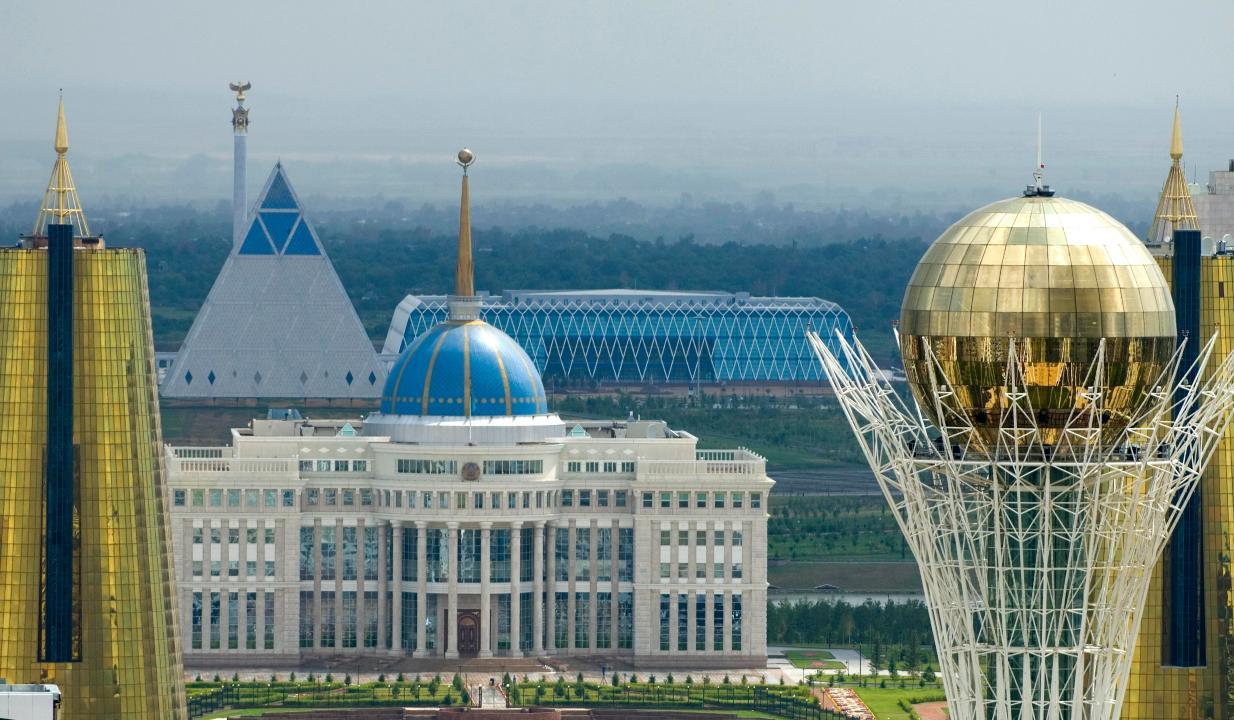BAKU, Azerbaijan, October 12. In recent years, Kazakhstan has entered an active phase of developing renewable energy sources. During this time, dozens of green energy facilities have been constructed and put into operation, demonstrating the country’s commitment to diversifying its energy mix.
Over the last decade, the installed capacity of renewable energy in Kazakhstan has grown more than 16-fold. In 2014, the total installed capacity stood at 178 MW, but by the end of 2023, it had reached 2,903.54 MW. In 2023, Kazakhstan's overall electricity consumption reached 115.06 billion kWh, a 1.9-percent increase compared to 2022, while electricity production remained at 112.82 billion kWh, consistent with the previous year.
Kazakhstan’s electricity generation is supported by 222 power stations, 147 of which are dedicated to renewable energy. The majority of these are wind power plants (59 facilities with a combined capacity of 1.409 GW) and solar power plants (46 facilities with a capacity of 1.222 GW).
In addition to existing facilities, Kazakhstan has signed several investment agreements with major global companies to build new renewable energy stations. These projects, some of which involve companies like France’s Total, the UAE’s Masdar, and Saudi Arabia’s ACWA Power, are expected to add a combined capacity of 5 GW by the end of the decade. The projects are set to begin in 2025-2026, with completion scheduled for 2029-2030.
Kazakhstan has set an ambitious target: to have 15% of its energy mix come from renewable sources by 2030. The government is actively supporting this goal by providing legislative measures and investor incentives to accelerate green energy development.
However, the country still faces a significant energy deficit. Currently, Kazakhstan is experiencing a shortfall of 1,500 MW, and the Ministry of Energy projects that this deficit could grow to 6.2 GW by 2030. By 2035, electricity consumption is expected to rise to 152.4 billion kWh, while existing power stations will only be able to produce 135 billion kWh. Many of the country’s thermal power plants are old and in need of extensive repairs and modernization, which are costly and unlikely to fully address the increasing energy demand.
One potential solution to this looming energy crisis is the construction of a nuclear power plant. In a recent referendum, over 71 percent of Kazakh citizens supported the development of nuclear energy in the country. Nuclear power could help close the energy gap while enabling Kazakhstan to meet its carbon neutrality commitments. The country is well-positioned for nuclear energy, as it possesses the world’s largest uranium reserves and has a strong scientific and technical foundation for nuclear technology.
In 2023, the Kazakh Ministry of Energy announced four major contenders for the nuclear power plant project: China’s CNNC, South Korea’s KHNP, France’s EDF, and Russia’s Rosatom. While it is still unclear which company will lead the construction, President Kassym-Jomart Tokayev has suggested that an international consortium of developers would be the most suitable approach. He emphasized the need for thorough analysis and negotiations before making a final decision.
A decision on the suppliers and project partners for Kazakhstan’s nuclear plant is expected in 2025. According to First Deputy Prime Minister Roman Sklyar, the development of the feasibility study and technical documentation will take approximately two and a half years, with construction anticipated to begin soon after.
Kazakhstan’s vast territory offers significant potential for expanding wind and solar energy. However, given the country’s growing energy needs, nuclear power seems to be the most viable option for ensuring a stable electricity supply. One nuclear reactor can generate significantly more energy than most renewable sources,
The country is making great strides in developing renewable energy, but the country’s energy challenges remain substantial. With nuclear energy, Kazakhstan could not only address its electricity deficit but also secure a cleaner and more sustainable energy future, contributing to both national development and global environmental goals.







